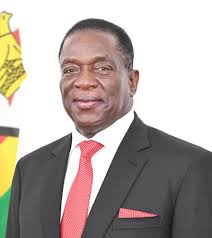Introduction
Tony Yengeni is a pivotal figure in South African politics, known for both his contributions and controversies. His life and career reflect the broader changes within the nation from apartheid to democracy. Understanding Yengeni’s significance offers insights into the political dynamics that have shaped modern South Africa.
Early Life and Political Activism
Born in 1950 in the Eastern Cape, Yengeni became involved in anti-apartheid activism in his youth. He joined the African National Congress (ANC) in 1980, rising rapidly through its ranks due to his strong leadership skills and dedication to the cause. Under the leadership of the ANC, he played a crucial role in the struggle against apartheid, becoming known for his forthrightness and dedication.
Role in Transition to Democracy
Yengeni was instrumental during South Africa’s transition to democracy in the early 1990s, contributing to drafting the new constitution. His work in the ANC’s military wing, Umkhonto we Sizwe, and later as a member of the Parliament showcased his commitment to the new South Africa. However, his career took a turbulent turn in the years following the first democratic elections in 1994.
Controversies and Legal Troubles
Despite his early successes, Yengeni’s political journey has been marred by controversies. In 2003, he was convicted of fraud related to a luxury vehicle importation scandal, leading to a prison sentence and significant public outcry. His case drew attention to issues of corruption within the ANC, igniting discussions around accountability and governance in the party. Yengeni’s reinstatement to the ANC after serving his sentence also sparked debates about the party’s integrity and values.
Recent Developments
As of late 2023, Yengeni remains an influential figure within the ANC, continuing to advocate for transformative policies in South Africa. He has emphasized the importance of addressing socio-economic challenges and corruption. His influence is apparent in ongoing party discussions, positioning him as a significant voice in shaping the future of the ANC and its direction.
Conclusion
Tony Yengeni’s complex legacy encapsulates the multifaceted nature of South African politics. From a fervent anti-apartheid activist to a controversial figure facing legal issues, Yengeni’s journey reflects the struggles within a nation striving for justice and equality. As South Africa continues to navigate its political landscape, the lessons drawn from Yengeni’s experiences become increasingly relevant for both current leaders and citizens alike. As observers look to the future, Yengeni’s role in reshaping policies and addressing corruption remains crucial for the direction of the ANC and the country’s recovery from its historical injustices.


